

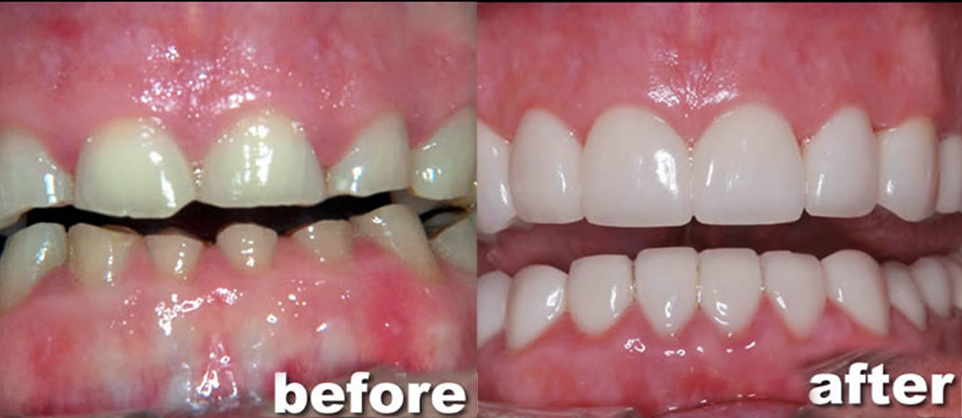
Teeth grinding (bruxism) is involuntary clenching, grinding and gnashing of the teeth. It is thought that about half of the population bruxes from time to time, while around five per cent are habitual and forceful tooth grinders. It generally happens during sleep, but some people experience it when they are awake.
can be a physical expression of stress; for example, susceptible people may tend to grind their teeth when they are angry, concentrating hard on a particular task or feeling anxious. Generally, the person doesn’t realise that they grind their teeth in their sleep. The spouse or partner who shares their bed (and hears the grinding noises at night) is often the first to notice the problem.
As soon as this problem you should call us and schedule an appointment
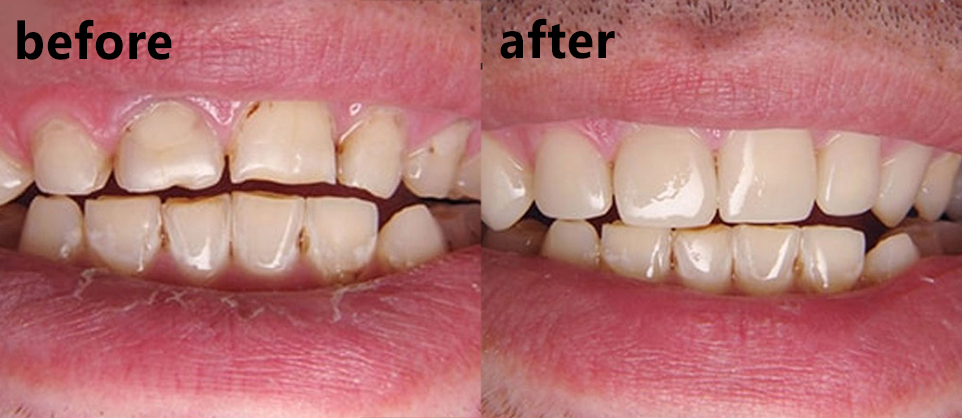
It is the loss of tooth structure by mechanical forces from a foreign element. If this force begins at the cement enamel junction, then progression of tooth loss can be rapid since the enamel is very thin in the tooth region.
It is a drill-less technique that is being used to remove tooth decay and for other applications. During air abrasion, a fine stream of particles is aimed at the decayed portion of the tooth. These particles are made of silica, aluminium oxide or a baking soda mixture and are propelled toward the tooth surface by compressed air or a gas that runs through the dental handpiece. Small particles of decay on the tooth surface are removed as the stream of particles strikes them. The particles of decay are then "suctioned" away.
Yes, Air abrasion is totally safe! The only precautions needed before air abrasion are: Protective eye wear to prevent eye irritation from the spray and the use of a rubber sheet that fits around teeth to protect areas of the mouth that aren't being treated. The suctioning of particles also prevents them from being breathed into the lungs.
The only disadvantage of air abrasion is that this procedure is not necessarily totally painless. The air can cause sensitivity and so can the abrasives used.

There are lot of reasons for facial pain, most of them are because of our teeth; for example " TMJ " or the temporomandibular joint. It is the joint that connects your mandible (lower jaw) to your skull. It can be found on both sides of your head in front of your ears. It allows your jaw to move, enabling you to speak and eat. TMJ disorders cause lots of problems such as tenderness in the joint, facial pain and difficulty in moving the joint.
The symptoms of TMJ disorders will depend on the severity and cause of the patient condition. Pain in the jaw and surrounding muscles is the most common symptom of TMJ. Other symptoms associated with these disorders include:
If you felt any of these symptoms do not hesitate to contact your dentist to solve the problem
In most cases, the symptoms of TMJ disorders can be treated through self-care practices at home; for example you can:

A lot of teeth problems can lead to permanent headaches. Tension headaches result from muscle strain, or contraction. Headaches from dental stress are a type of muscle tension headache it may be from on one or both sides of your head, it may surround your head as if a steel band were wrapped around it. The pain feels like a dull, non-throbbing ache. Tension headaches are usually relieved by aspirin.
Specific signs which indicate that the headache may have a dental origin include:
eventually the muscles which control your jaw and hold your head upright are very complex. Many people do not realize that every time they swallow, their upper and lower teeth must come together in a firm way to brace the jaw against the skull. We swallow over 2000 times each day and night! If your bite is unstable, as from poorly aligned teeth or even a missing tooth, the muscles must work harder to bring the teeth together. Most people take a vacation from work when they tire out-but your jaw muscles never get a break! The overworked muscles become strained. When muscles are under constant strain, they eventually become painful.
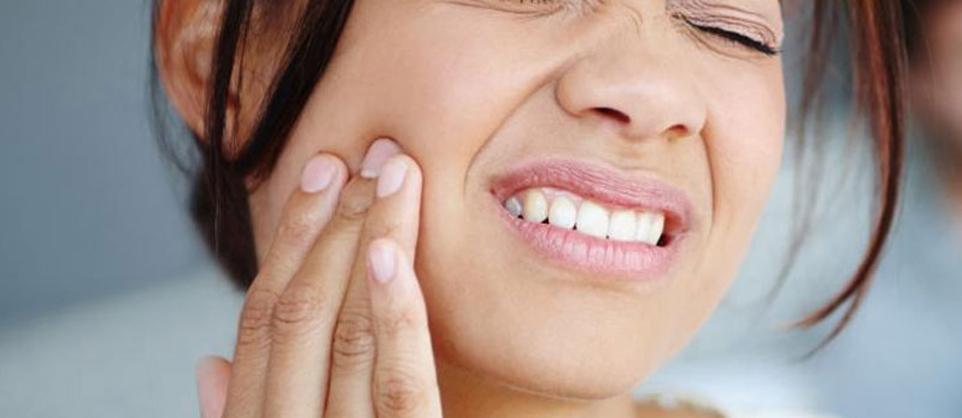
Dislocation of the jaw is when 2 bones that were originally met are seperated one from another. When a person have a dislocated jaw it is very difficult for him to open or close his mouth easily. If the jaw is dislocated, it may cause an extreme headache or inability to concentrate. When the muscle's alignment is wrong, a pain will occur due to unwanted rotation of the jaw.
The most common cause of a broken or dislocated jaw is injury to the face. This may be due to
Be aware a dislocated or broken jaw should be treated immidiatly because of the risk of breathing problems and continious bleeding.
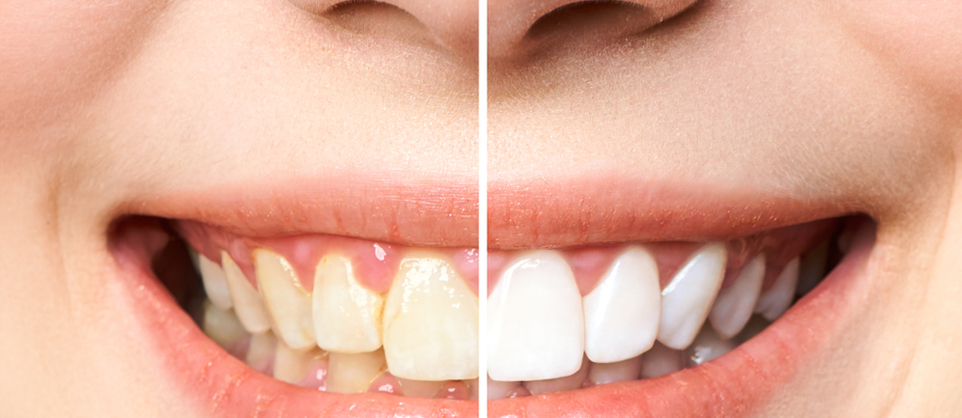
Enamel is the thin outer covering of the tooth. This tough shell is the hardest tissue in the human body, the enamel covers the crown which is the part of the tooth that's visible outside of the gums. Tooth erosion happens when acids wear away the enamel on teeth,
If the enamel loss is significant, the dentist may recommend covering the tooth with a crown. The crown may protect the tooth from further decay.
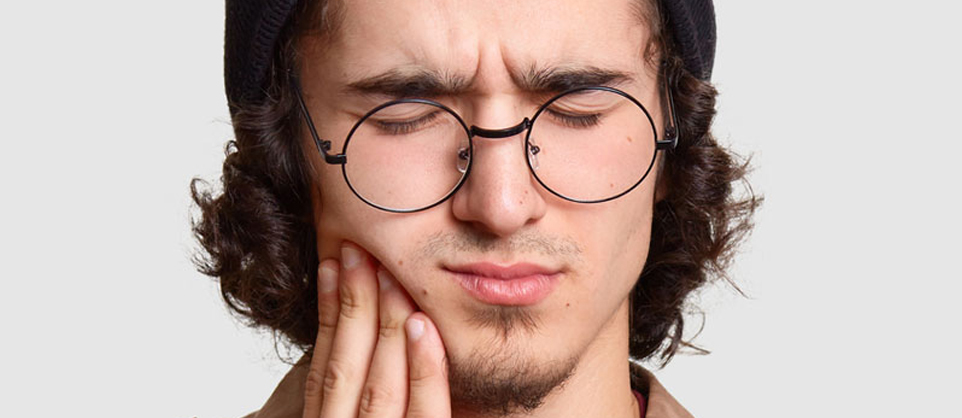
Dentists believe symptoms arise from problems with the muscles of your jaw or with the parts of the joint itself. Injury to your jaw, the joint, or the muscles of your head and neck like from a heavy blow or whiplash can lead to TMD.
You may also have toothaches, headaches, neck aches, dizziness, earaches, hearing problems, upper shoulder pain, and ringing in the ears.
Use moist heat or cold packs and apply it for 10 min and apply it to the side of your face
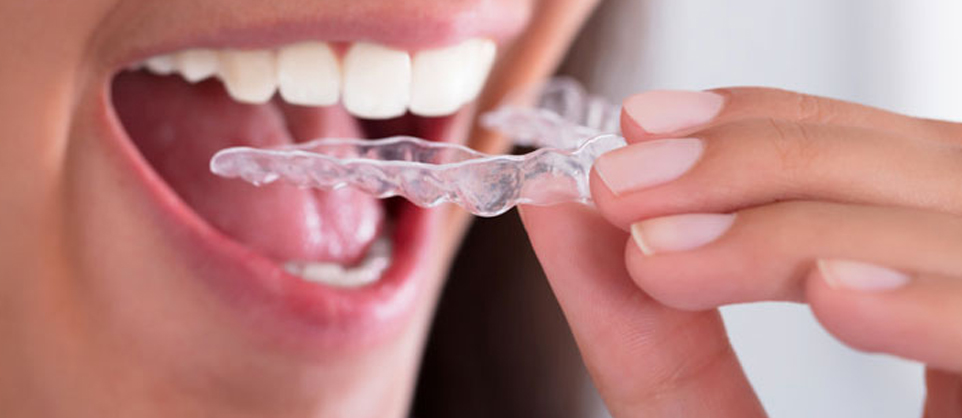
A nightguard is a retainer that people put in their mouths to protect their teeth while they are sleeping. This device is commonly used by people who suffer from bruxism or excessive nighttime tooth grinding or clenching. This grinding and clenching puts pressure on the jaw, which can cause temporomandibular joint (TMJ) problems, severe headaches, ear pain, and neck pain as well as causing excessive wear to the teeth.
Thin, transparent, and horseshoe-shaped, dental nightguards are created from hard but moldable plastics. The nightguard fits over either the upper or the lower teeth, creating a cushion between them and absorbing the impact of the grinding or clenching. Nightguards can help reduce enamel damage, jaw joint inflammation, and irritation to the gums. Overall, most nightguard wearers report they have less pain and sleep better.
In order to be truly effective, nightguards need to be custom-made for each individual. It typically takes two dentist appointments to receive a nightguard. During the initial visit, the dentist takes a bite record and makes an impression of the patient’s teeth. These will be used to create a customized nightguard that allows for proper teeth alignment. During the second appointment, the patient gives the nightguard a test run and the dentist makes any necessary adjustments.
Copyright © 2021 EMPIRE Dental Center. All rights reserved | Powered by Chrisans Solutions